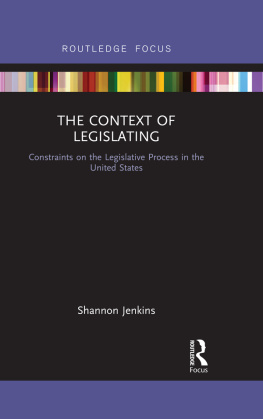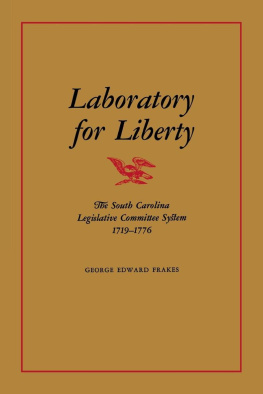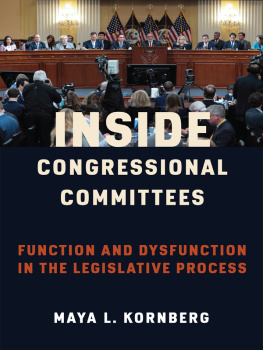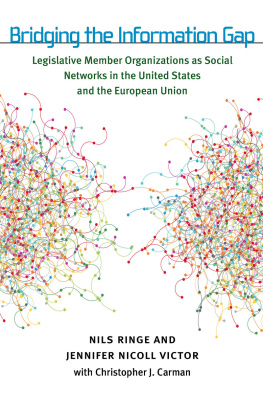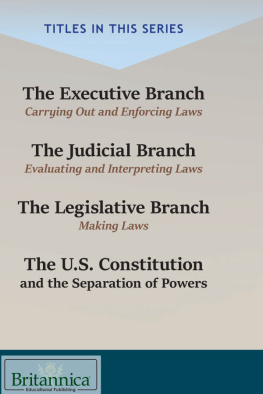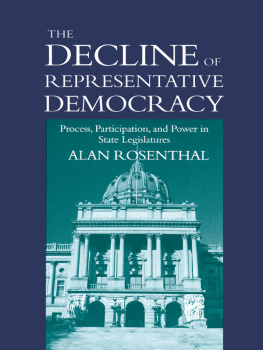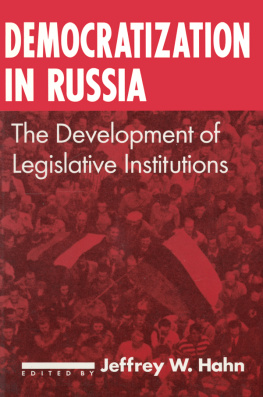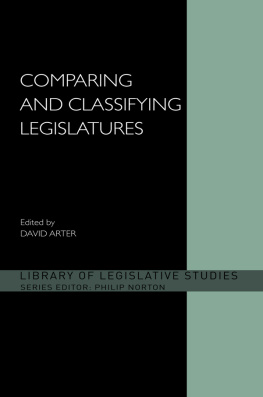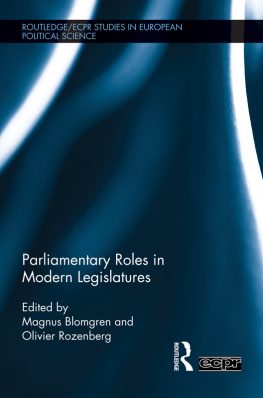The Context of Legislating
The Context of Legislating provides a much-needed examination of how the rules, resources, and political conditions within and surrounding different institutions raise or lower the costs of legislating. Using data tracking over 1,100 legislators, 230 committees and 12,000 bills introduced in ten state lower chambers, Shannon Jenkins examines how political conditions and institutional rules and resources shape the arc of the legislative process by raising the costs of some types of legislative activity and lowering the costs of others. Jenkins traces these important contextual effects across the legislative process, examining bill introduction, committee processing and floor passage of bills in these legislatures. The analysis reveals that institu -tional variables shape the legislative process on their own, but they also have important interactive effects that shape the behavior of actors in these chambers. After tracing these effects across the legislative process, the book concludes by examining the practical implications of these analytical findings. How can the rules of institutions be designed to create effective legislatures? And what do these findings mean for those who seek to shape the policies produced by these institutions?
Understanding of how the context of legislating shapes the outputs of legislatures is a critical element of understanding legislatures that has been sorely missing. An original and timely resource for scholars and students researching state legislatures and state politics.
Shannon Jenkins is Chair and Associate Professor of Political Science at the University of Massachusetts, Dartmouth. Her research focuses on state and local politics, with a focus on decision-making in state legislatures and state and local political parties.
Increasingly, American political scientists are recognizing the advantages of comparative study at the state level. Shannon Jenkins has produced a study that advances our knowledge of how the institutional and political contextthe rules, structures and partisan arrangementsinfluence the making of law in our states. It is a welcome addition to the new research on state legislatures.
Gary Moncrief, University Distinguished Professor Emeritus,
Boise State University
First published 2016
by Routledge
711 Third Avenue, New York, NY 10017
and by Routledge
2 Park Square, Milton Park, Abingdon, Oxon, OX14 4RN
Routledge is an imprint of the Taylor & Francis Group, an informa business
2016 Taylor & Francis
The right of Shannon Jenkins to be identified as author of this work has been asserted by her in accordance with sections 77 and 78 of the Copyright, Designs and Patents Act 1988.
All rights reserved. No part of this book may be reprinted or reproduced or utilised in any form or by any electronic, mechanical, or other means, now known or hereafter invented, including photocopying and recording, or in any information storage or retrieval system, without permission in writing from the publishers.
Trademark notice: Product or corporate names may be trademarks or registered trademarks, and are used only for identification and explanation without intent to infringe.
Library of Congress Cataloging in Publication Data
A catalog record for this book has been requested
ISBN: 978-1-138-68442-3 (hbk)
ISBN: 978-1-315-54392-5 (ebk)
Typeset in Times New Roman
by Florence Production Ltd, Stoodleigh, Devon, UK
Many years ago, I was talking with John Frendreis, then my dissertation advisor, about potential dissertation topics. After having worked with him and Alan Gitelson for several years on a project about political parties, I was pretty much done with that topic at that point. Fortunately for me, John casually tossed off a comment about how the data we had collected might be used for an interesting project looking at state legislatures. Many years later, here I am still writing about state legislatures and how they work. I consider myself lucky to have found a research topic that truly interests me, and I am thankful for the guidance I received in graduate school that put me on this path. I am extremely grateful for the guidance and mentoring from John Frendreis, Alan Gitelson, John Pelissero, and others at Loyola University, where I completed my graduate work.
I have also been fortunate to land a position at the University of Massachusetts, Dartmouth; my institution and my colleagues have been incredibly supportive of my work, from research and travel support to sabbatical leaves, which has enabled me to focus on this project and see it to fruition. In particular, Id like to thank my reference librarian, Matt Sylvain, for all the help he has provided in digging up obscure bits of data and facts that were not readily available on the Internet.
Numerous employees of these legislative chambers helped too, both in providing data and in spending time talking to me to help make sense of what I was seeing. It was good fun to talk to other people who were just as interested in the inner workings of legislatures, and their insights were extremely helpful in understanding both their chamber and the legislative process generally. These people often toil under difficult political conditions, so their willingness to share what they know was much appreciated.
It also goes without saying that state politics is one of the best subfields in political science. While my work cannot compare to the many giants in this field who have come before me, their work has inspired me. I have also been the beneficiary of helpful feedback, useful information, and supportive commiseration about the difficulty over collecting and analyzing state political data over the many years that I have worked on this project. Discussants, chairs, and audience members have provided commentary at a variety of disciplinary conferences when I presented my preliminary work on this project, but in particular, the State Politics and Policy Conference has been a book-saver for me on numerous occasions, both for supportive feedback and insightful suggestions from my state politics colleagues.
I would also like to thank all of the students who worked with me on this project. Students in my Women and Politics and State Legislatures senior seminars (Bethany Berube, Aaron Bryant, Jennifer Denker, Christopher Dinan, Gregory Dorman, Michelle Hall, Justin Lacasse, Katie Olson, Diana Robbins, Brett Schricker, Meghan Thompson, and Courtney Torres) worked diligently to collect data; in the process, they learned what political science research truly entails, for better or for worse. Numerous student workers (Max Cohen, John Cotreau, Angelica Colon, Samantha Egge, Ryan Gallagher, Chris Madeiros, Amanda Maier, Erin McDonagh, Samantha Pettey, Betsy Rivera, Michael St. Martin, and Travis Ward) also helped me finish and check the legislative process data and gather additional information.
Lastly, Id like to thank my family for their support during my career. Unfortunately, neither Bill Jenkins nor Rich Bokor are here to appreciate the results of this project, but I know they would have been proud. I am hopeful that Ann Bokor and Judy Jenkins will be proud too. I know I would not be as successful I am today without their support.
My children, Quinlan and Berkley Roscoe, had to put up with many distracted hours from their mother as I worked on this project. As deadlines approached, they have been incredibly understanding about the times when I needed to focus on this and not them. Hopefully, theyll still turn out okay time will tell. Thanks guys.

